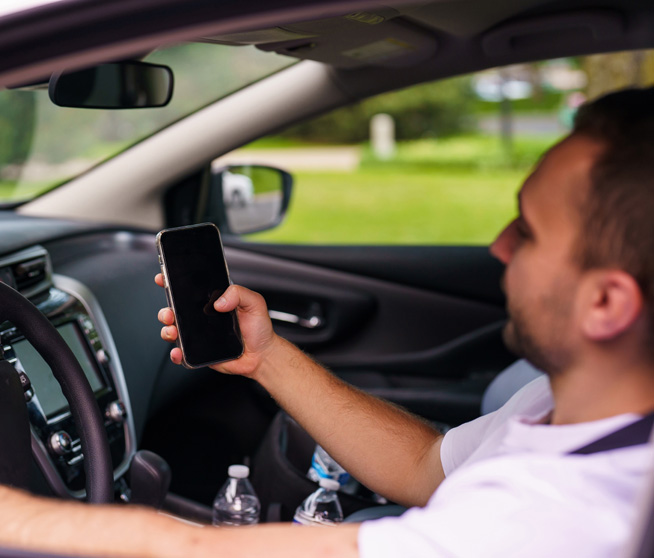An Overview of Colorado’s Hands-Free Law

Imagine you’re driving down a Colorado highway, focused on the road ahead, when suddenly another driver swerves dangerously close with their eyes glued to their phone. Unfortunately, distracted driving is a reality many of us face daily, leading to devastating consequences for innocent victims. Colorado’s hands-free law prohibits drivers from using handheld devices while operating a vehicle, aiming to reduce distractions and improve road safety.
Understanding this law can help you stay informed, protect yourself, and know your rights if you’re ever impacted by a distracted driver’s negligence. At Mintz Law Firm, we have years of experience handling personal injury cases, and we’re here to help if you’ve been affected by someone violating Colorado’s hands-free law. If you need assistance with a claim involving a distracted driver, contact us to retain valuable support and valuable information today.
What is Colorado’s Hands-Free Law?
Colorado is updating their hands-free law on January 1, 2025, changing how drivers are allowed to use their personal devices while behind the wheel. Not only are Colorado drivers not allowed to text while driving, but they are also not permitted to manually use a mobile device to make voice calls or for any other reason. All drivers who want to use a mobile device—like a phone or tablet—will be required to use a hands-free accessory beginning in the new year.
While the new law does allow some exceptions to this law, these exemptions are specific. For example, drivers are allowed to report emergencies and use their mobile device while their car is parked. Utility workers, code enforcement officers, first responders, and animal protection officers are also allowed to use their phones manually. Drivers operating commercial vehicles also do not need to follow this new law. These exceptions are meant to enable smooth communication during emergencies and other critical services.
Are There Penalties for Breaking Colorado’s Hands-Free Law?
There are new penalties for drivers who break the new hands-free law. First offenders will receive a $75 fine and two suspension points to their license. Repeated violations will result in higher penalties and more points on the driver’s license.
There are some cases where first-time offenders can have the charges dismissed, such as if they can provide proof of purchasing a hands-free mobile device accessory. However, drivers should also be aware there is no grace period for following the law once it goes into effect on January 1, 2025.
What Hands-Free Accessories Can You Use in Colorado?
Drivers have a few options for hands-free accessories. There are also options for older vehicles that may not automatically pair with mobile devices. These accessory options include the following:
- Bluetooth headsets, headphones, or earbuds
- Dashboard mount
- Android Auto
- CarPlay
- Other built-in car speaker phone systems
We recommend you find a hands-free accessory as soon as possible to remain compliant with the new law and avoid fines and other penalties. According to the Colorado Department of Transportation, putting your device on speaker mode will not automatically comply with the new law. Manually using the phone at any time while driving may result in penalties.
Why Choose Mintz Law Firm for Your Distracted Driving Case?
If you’ve been affected by a distracted driver’s negligence, we’re here to help. At Mintz Law Firm, we focus on protecting your rights and ensuring you receive fair compensation for your injuries and losses. With years of experience handling personal injury claims in Colorado, we’re well-versed in navigating the intricacies of cases involving the hands-free law.
Our team is dedicated to managing the legal complexities while you focus on recovery. From gathering evidence to representing your best interests, we’re committed to achieving the best possible outcome for your case. Call us at (303) 462-2999 or visit our contact form to learn more about how we can protect your rights.
